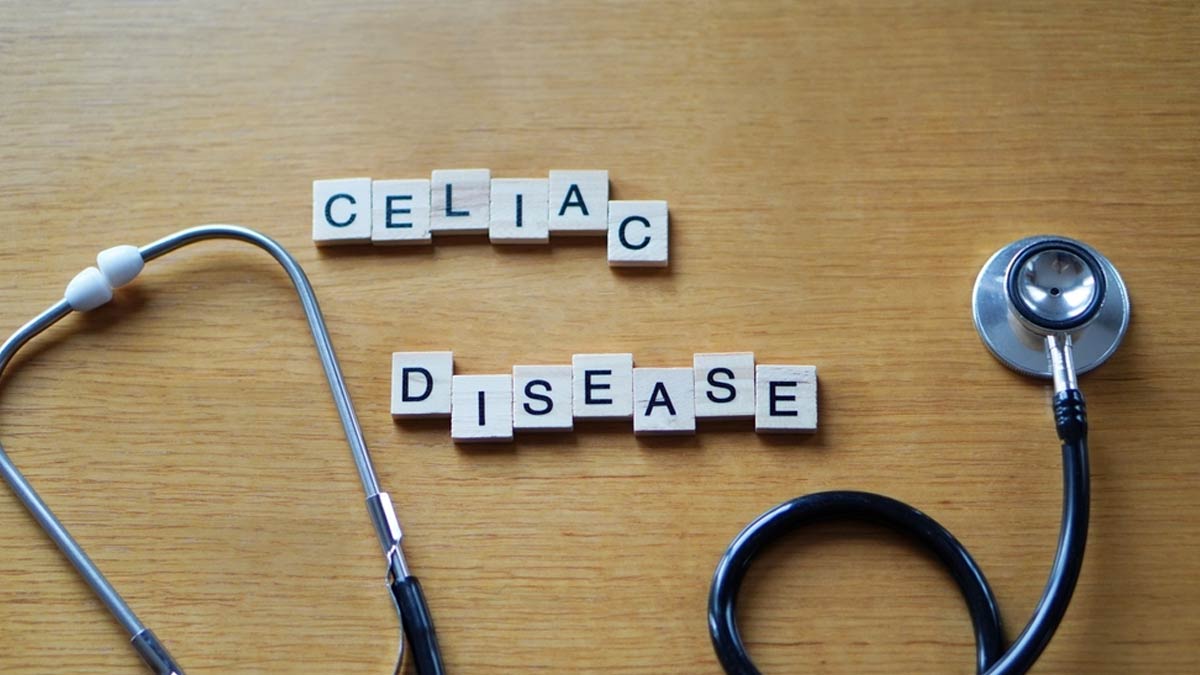
In the last few years, Gluten-free has become a buzzword and is a lifestyle choice for many. Be it a medical condition or a personal preference, more and more people are cutting gluten out of their diet. However, confusion often arises between celiac disease and gluten sensitivity, two conditions that share similar symptoms but are actually quite different in cause, severity, and long-term impact.
Table of Content:-
So, the editorial team of Onlymyhealth reached out to our expert, Ms Rashi Chahal, Clinical Nutritionist, Fortis La Femme GK, Support Specialities, Dietetics and Clinical Nutrition, who helped us understand the difference between the two to us and explained why it really matters to our health. Read ahead to know everything she shared with us.
What is Celiac Disease?
Celiac disease is an autoimmune disease that occurs when the body's immune system mistakenly attacks the small intestine following the ingestion of gluten-a protein contained in wheat, barley, and rye. "In people with celiac disease, even a little bit of gluten can set off this immune reaction, causing damage to the small intestine," said Chahal. That injury impairs the absorption of nutrients and, if left untreated, may lead to serious health issues such as anemia, osteoporosis, infertility, and even certain cancers.
Also Read: Is Gluten-Free Diet Good For Everyone? Expert Shares

Celiac disease is genetic and tends to run in families. Blood tests (that detect specific antibodies) diagnose the condition, which is then confirmed via an intestinal biopsy. “The only treatment for celiac disease is a strict, lifelong gluten-free diet. Even trace amounts of gluten from cross-contamination can cause harm,” she added.
What Is Gluten Sensitivity?
On the other hand, NCGS is not an autoimmune disease. It's a condition wherein people develop symptoms like celiac disease, such as bloating, abdominal pain, fatigue, or brain fog, after eating gluten, without the intestinal damage or positive antibody tests seen in celiac patients.
“People with gluten sensitivity don’t show the same immune markers or intestinal injury. Their symptoms improve when gluten is removed from the diet, but they do not have the long-term complications associated with celiac disease,” Chahal explained.
Since gluten sensitivity doesn't have a specific diagnostic test, it is mostly diagnosed by the exclusion of celiac disease and wheat allergy. When these are ruled out, only then can an elimination diet help in ascertaining whether gluten really acts as the trigger.
Symptoms Overlapped but Mechanisms Varied
Both celiac disease and gluten sensitivity can present with a wide range of gastrointestinal and extra-gastrointestinal symptoms, including:
- Bloating and gas
- Diarrhea or constipation
- Fatigue
- Headaches or brain fog
- Joint or muscle aches
- Skin rashes
The mechanisms, however, vary. In celiac disease, an immune response is mounted against the body's own tissues, while in gluten sensitivity, the reaction is non-autoimmune and non-allergic. "Think of it as your body being intolerant rather than allergic," said Chahal.
Also Read: Is Bread Really Hard to Digest? Nutritionist Breaks It Down

Role of Wheat Allergy in Celiac Disease and Gluten Sensitivity
Adding to the confusion, there is also wheat allergy, a whole different condition from all of the above. It's an immune response against proteins in wheat, not necessarily gluten alone. Symptoms can be hives, swelling, or even anaphylaxis-making it a classic allergic reaction rather than a digestive one.
“Wheat allergy, celiac disease, and gluten sensitivity all involve different immune pathways. That is why proper testing and professional diagnosis are necessary before cutting out gluten altogether,” she pointed out.
How to Manage and Eat Safely with Celiac Disease or Gluten Sensitivity
People who have been diagnosed with celiac disease will have to avoid gluten completely. This includes reading labels carefully and avoiding cross-contamination from shared utensils or cooking surfaces.
In gluten sensitivity, the approach can be more flexible. “Some people can have small portions of gluten now and then, while others cannot. The main thing is to listen to your symptoms and consume a balanced, nutritious diet rich in fruits, vegetables, lean proteins, and naturally gluten-free grains like rice, quinoa, and millet,” Chahal recommended.
Bottomline
While celiac disease and gluten sensitivity can be similar symptomatically, they are not the same thing. Whereas celiac disease is an autoimmune state with a risk for long-term health complications, gluten sensitivity represents a non-autoimmune reaction that affects quality of life nonetheless. A proper diagnosis with personalized guidance from a qualified nutritionist is important to manage either condition safely and effectively.
Also watch this video
FAQ
1. Can gluten sensitivity turn into celiac disease over time?
No, sensitivity to gluten does not lead to celiac disease. They are different conditions with different immune responses.2. Can I eat gluten occasionally if I have celiac disease?
No. Even a small amount of gluten can cause intestinal damage in people with celiac disease, so strict avoidance for life is necessary.3. What foods are naturally gluten-free?
Therefore, foods such as fruits, vegetables, meat, fish, eggs, rice, quinoa, lentils, and most dairy products are gluten-free and safe for consumption.
How we keep this article up to date:
We work with experts and keep a close eye on the latest in health and wellness. Whenever there is a new research or helpful information, we update our articles with accurate and useful advice.
Current Version
Nov 01, 2025 00:40 IST
Published By : Tanya Srivastava